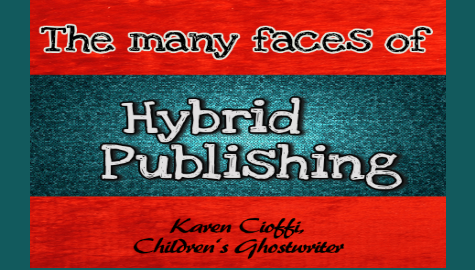As with everything, the publishing industry has changed. With the difficulty in getting a traditional contract through queries and proposals and the hands-on learning and doing of ‘real’ self-publishing, there is a third option: Hybrid publishing.
So, what exactly is hybrid publishing?
According to Ingram Spark, “Hybrid publishing combines some elements of traditional publishing with those of independent publishing.” (1)
But, that definition is a bit vague as there are different formats within hybrid publishing.
The partnerships
There are some hybrid companies that offer publishing assistance. These companies have expertise in the arena, whether it’s editorial, design, marketing, or all aspects. This type of publishing has a form of gatekeeping to ensure quality. They will NOT print just anything.
While an upfront fee is required, it’s more of a partnership. These companies work with you. They’re vested in your book’s success. They make money from sales just like you do.
The pay to play companies
Then there are the hybrid companies that will publish anything as long as the author pays for it. There is no quality control. Back when, vanity presses were noted for this. These companies don’t care if you sell a single book, they already got their money.
And, there are variations in between. So, pretty much, any company that helps you get your manuscript published and turned into an ebook or paper book for a fee is a hybrid company.
It really is confusing.
In fact, a while after I published this article, I received a query to ghostwrite for a hybrid company. Looking into the company, I found that the author paid 100% of the publishing fees and the service took a percentage of each copy sold besides that. My first thought was how could they call themselves a hybrid – they’re a full fledged vanity press.
Again, it really is confusing.
Even if you’re offed 100% royalties, be suspicious.
Publisher’s Weekly has an excellent in-depth article on hybrid publishing. It’s definitely worth the read if you’re thinking of paying to help get your book published: The Indie Author’s Guide to Hybrid Publishing
And, publishing expert Jane Friedman offers great advice on How to Evaluate a Hybrid Publisher
What they all have in common
Before you can think about self-publishing a book, no matter what route, you need to write a story. And, since your name will be on that story as author, you should write a quality story, one that you’ll be proud of.
I can help with that. I’m a children’s ghostwriter and rewriter and can turn your idea into a publishable story. Or, if you have a draft, but it needs a lot of work, I can rewrite it for you.
If you’d like to discuss a project, send me an email at kcioffiventrice@gmail.com
You can also check the Contact Page for my phone number if you’d prefer discussing it over the phone.
If your children’s manuscript is complete and need help publishing it, check out Writers on the Move Self-Publishing Help.
References
(1) Publishing Options: Traditional, Hybrid, Self-Publishing
MORE ON WRITING
Small Home Grown Book Publishers

